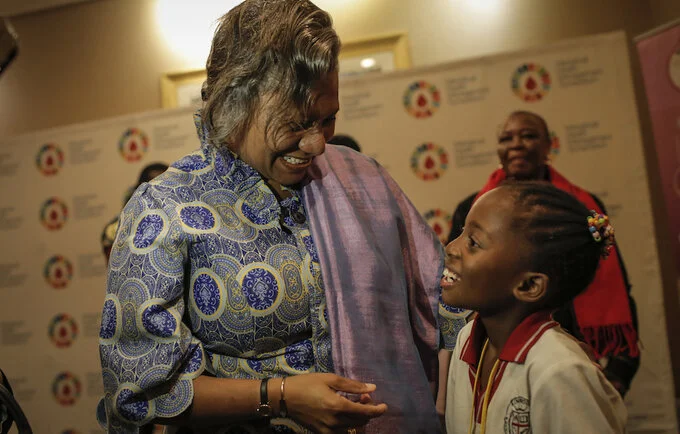Menstruation is a natural, and essential, part of the reproductive cycle; roughly half the human population has or will experience it. But too often, menstruation is shrouded in mystery, leading to exclusion, neglect and discrimination. Earlier this month, to celebrate Menstrual Health Day, VOA's Kim Lewis sat down with guest Dr. Julitta Onabanjo, acting director of programs for UNFPA, and VOA's Hayde Adams Fitzpatrick to explore the challenges and breakthroughs women and girls face in menstrual health management, particularly during the COVID-19 pandemic.
Here are some of the highlights:
1 - Menstruation, and menstrual hygiene are human rights issues
Menstruation is intrinsically related to human dignity – when people cannot access safe bathing facilities and safe and effective means of managing their menstrual hygiene, they are not able to manage their menstruation with dignity. Menstruation-related teasing, exclusion and shame also undermine the principle of human dignity.
2 - Stigma and taboos around menstruation exist worldwide
In many or most cultures, around the world and throughout history, misconceptions about menstruation have led to women’s and girls’ exclusion from all kinds of roles and settings – everything from leadership positions to space travel.
3 - Menstruation is not just a woman's issue
While it is true that menstruation is experienced in the bodies of women and girls – as well as other individuals such as non-binary and trans persons – menstrual health issues are human rights issues, and therefore of importance to society as a whole. This means that men and boys must be involved in conversations about gender equality and promoting positive masculinities aiming to eliminate menstruation-associated stigma and discrimination.
4 - COVID-19 is having a huge impact on people’s ability to manage their menstrual health globally
Communities around the world are feeling the numerous and overlapping effects of the COVID-19 pandemic, significantly impacting many women and girls’ ability to manage their menstruation safely and with dignity. Girls who rely on free sanitary products dispensed from their schools are suffering as lockdowns have shut schools and universities, confinement in close quarters, especially in slums and townships, is exacerbating negative gender norms and taboos that shroud menstruation. The financial stress on families who are underemployed due to the pandemic, is pushing some households to prioritise other basic needs like food or household bills over menstruation supplies.
For more, tune in to VOA's conversation with Dr. Onabanjo.



